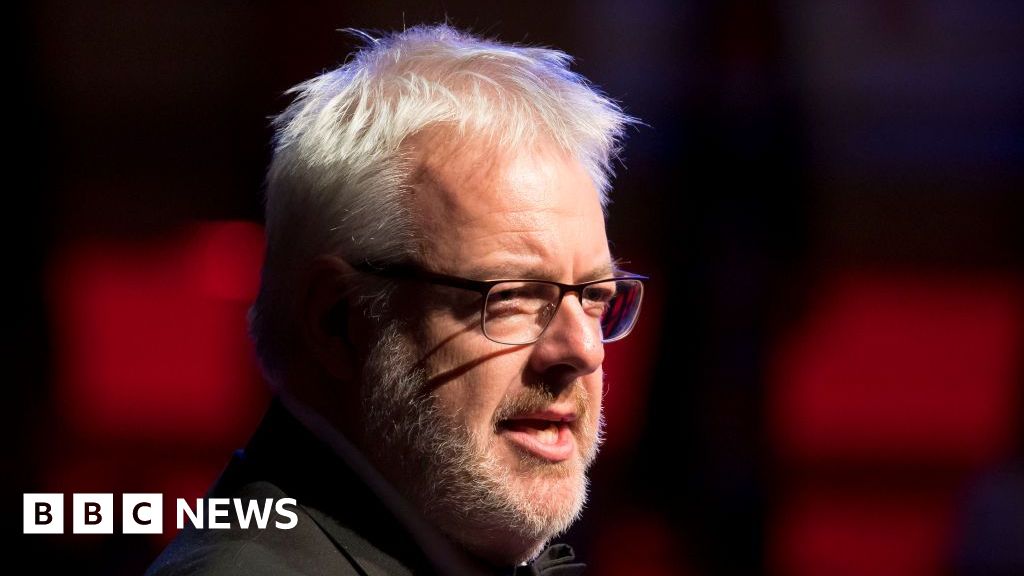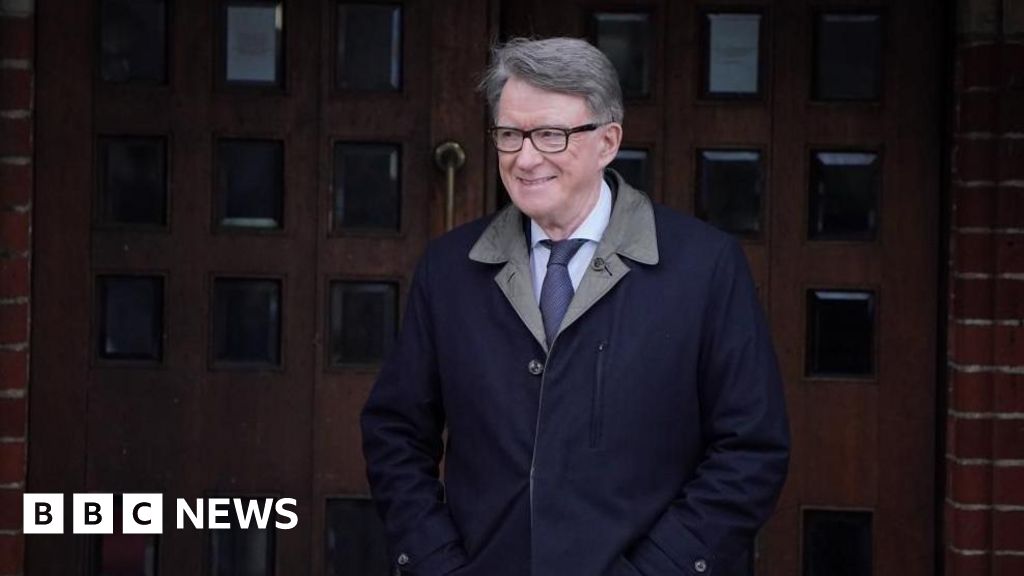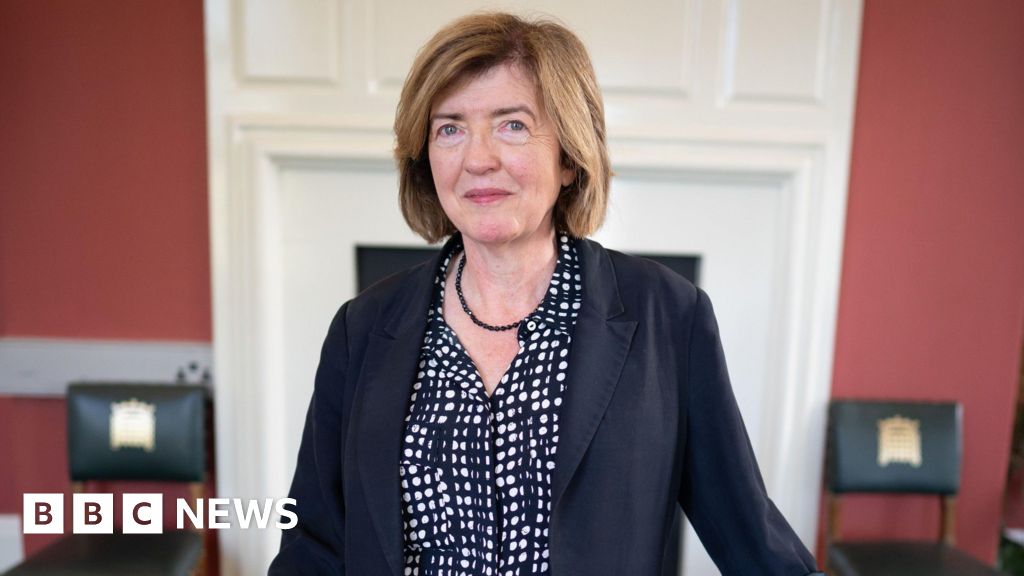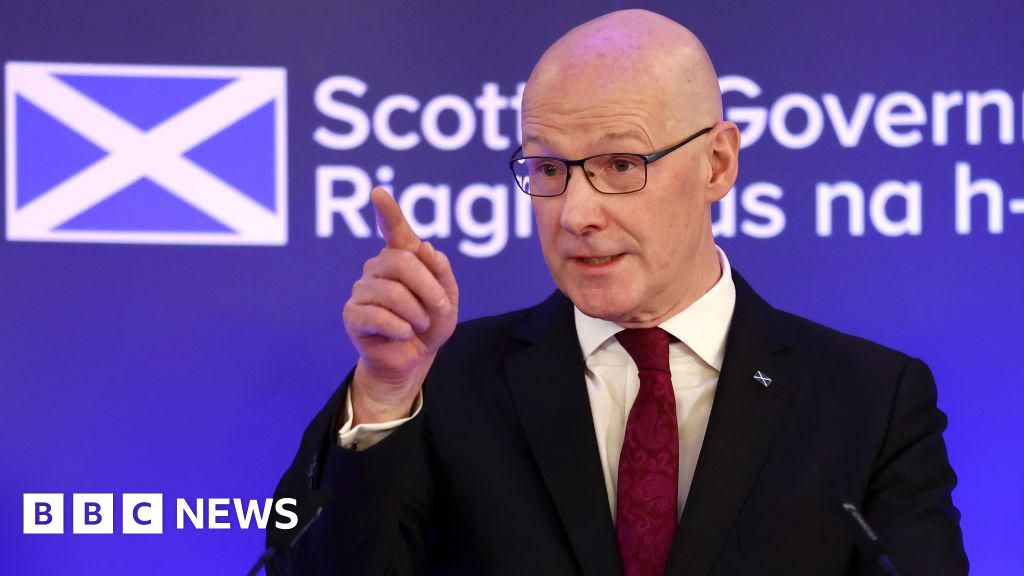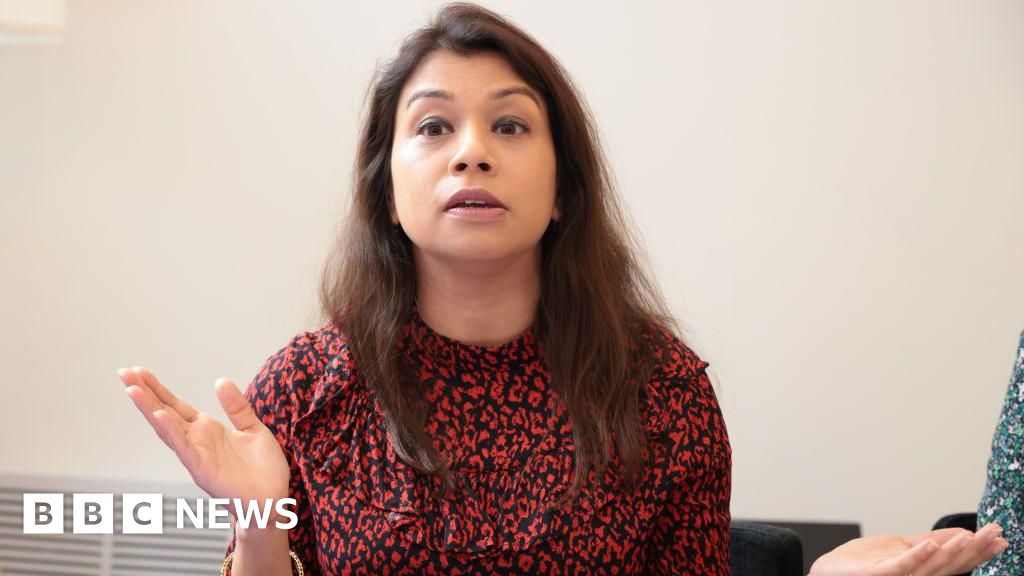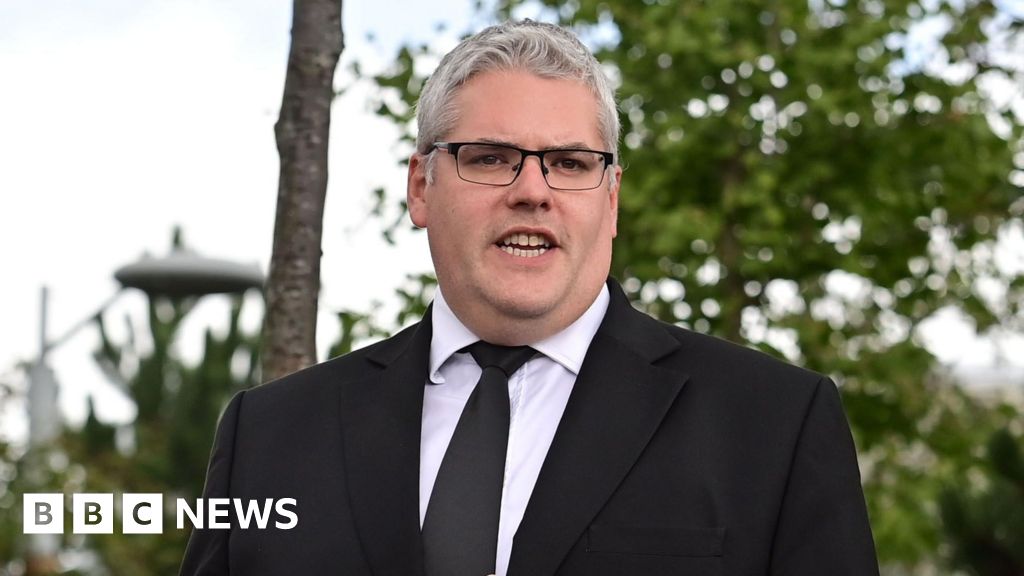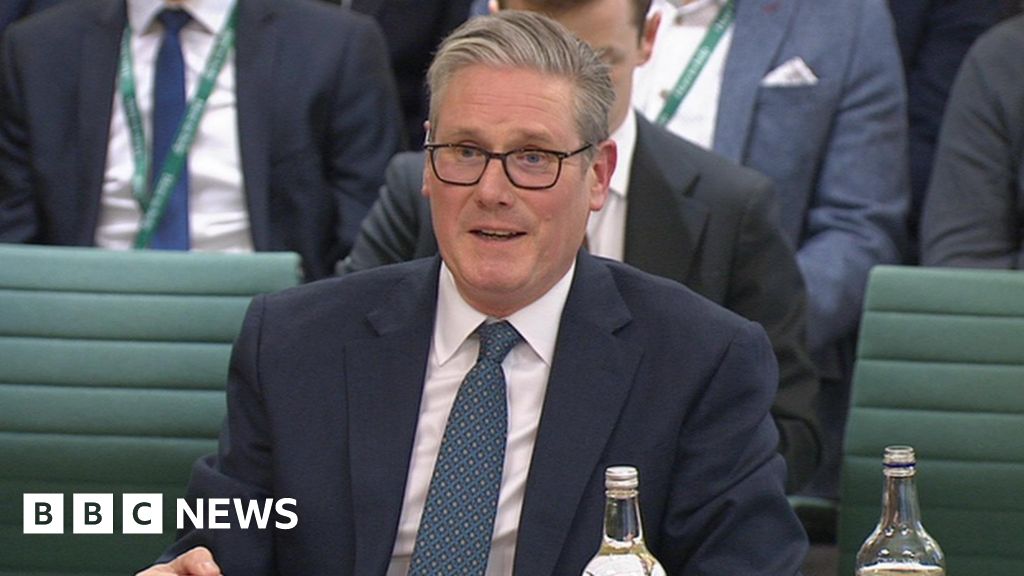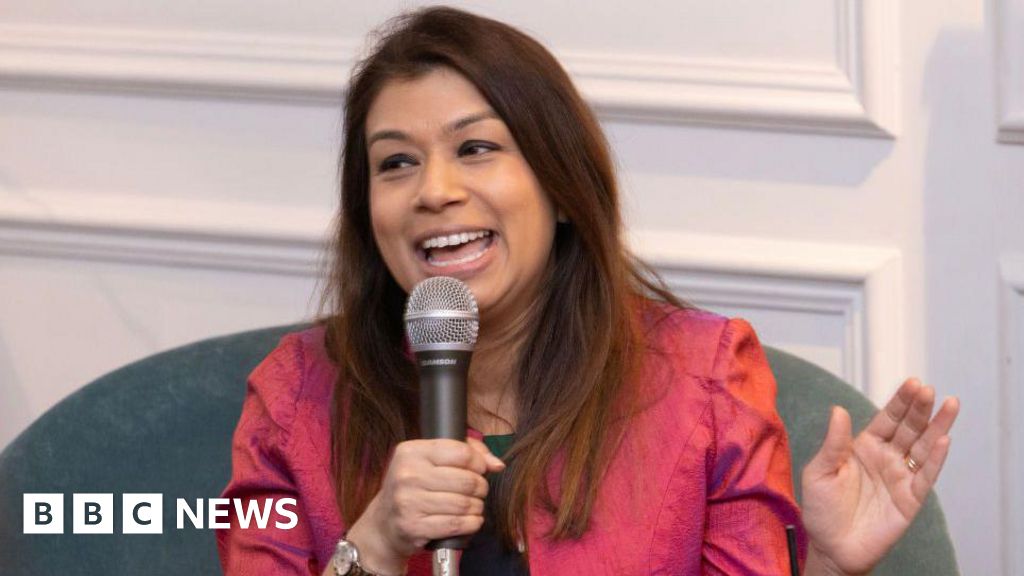
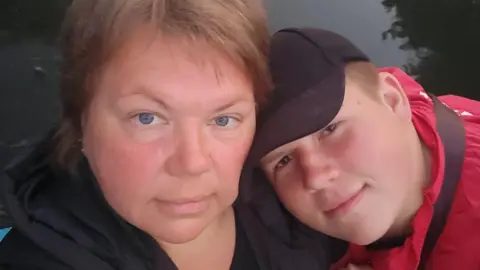 Halyna Khovaiko
Halyna Khovaiko
Halyna was in the UK when the war broke out - leaving her separated from her son Ihnat
The government is facing calls to reverse changes which make it harder for Ukrainians to bring family to the UK. One charity supporting migrants says the "heartless" policy has "torn apart" families and left people in danger.
When Halyna Khovaiko first moved to the UK in December 2021 for work she had only been planning to stay for a few months.
After the factory she worked at in eastern Ukraine closed down she managed to get a seasonal job on a farm in the UK and left her son Ihnat, who was then 12 years old, with his grandparents in Vovchansk.
But in February 2022 Russia launched its full-scale invasion of Ukraine. Vovchansk - which is just 5km from the Russian border - was occupied and Halyna was suddenly unable to return.
"I have a very strong bond with my son," she says, speaking through a translator.
"Of course I miss him. It feels like you are more dead than alive.
"Just going to work and that's it. You exist but you don't live."
After the town was liberated by the Ukrainian army in the autumn of 2022 Halyna - a single mother - was able to see her son again. However, struggling to earn money to support her family she eventually decided to return to the UK for work.
Her plan was to rent a flat so she could move out of the farm caravan where she was staying and her son could join her.
In January she finally managed to find somewhere to live in Weston-super-Mare and began the process of applying for a visa for her son under the Homes for Ukraine scheme.
The scheme, launched in March 2022, allows people in the UK to host those fleeing the war in Ukraine.
However, in February - without notice - the government suddenly restricted eligibility so only British or Irish citizens or those with the right to live in the UK permanently could act as sponsors.
This meant Ukrainians living in the UK without permanent residence - including Halyna - could no longer sponsor family members to join them in the UK.
At the same time the Ukraine Family Scheme, which allowed Ukrainians to join family members who already had permanent residence in the UK, was also closed.
Back in Vovchansk Russian attacks had intensified and the town was destroyed by shelling.
Halyna's son, now 14, was forced to flee with his grandparents to the city of Kharkiv, 70km away.
For Halyna, knowing her son is in danger is almost unbearable.
"There are explosions [where he is] every day," she says. "You go to sleep and you don't know if you're going to wake up in the morning."
Work Rights Centre, a charity supporting migrants, says it has heard from nearly 200 Ukrainians who are separated from family members and trying to bring them to the UK.
Chief executive Dr Dora-Olivia Vicol says the current policy is "heartless" and has "torn apart" families.
"We have seen parents spend months fighting for a way to bring their child to the UK," she says.
"Others have tragically endured the death of a family member in Ukraine while they were searching for a sponsor to bring them to the UK."
The charity is calling on the new government to reverse the changes brought in by its predecessors so Ukrainians without the right to live in the UK permanently can still act as sponsors and reunite their families.
When it was in opposition Labour said the changes sent "the wrong message to the people of Ukraine about our willingness to stand with them".
With the party now in government, the Home Office says the schemes are kept "under continual review".
Nadiia Yashan, an immigration advisor for Work Rights Centre who is from Ukraine herself, says the changes were a huge shock.
When they were announced, she says some of her clients were in the middle of applications or about to sign leases on a flat where they had hoped their family would be able to come and live.
Like the Ukrainians she works with, Nadiia says she was "devastated" by the news as she had hoped to bring her own mother to the UK if the situation in Ukraine worsened.
As she came to the UK on a student visa, with her right to stay extended because of the war, Nadiia does not have the right to live in the UK permanently so could no longer act as a sponsor for her mother.
"I feel guilty, because maybe I should have [applied for her to come to the UK] sooner," she says.
"I'm very, very concerned, and I'm thinking every day, what if it gets worse, and I need her to be here immediately and I can't do anything?"

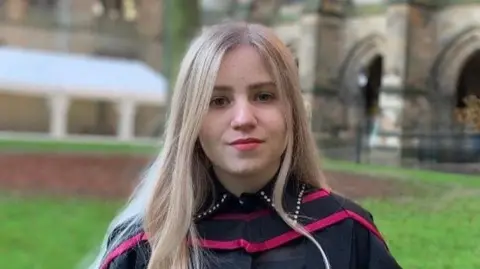 Nadiia Yashan
Nadiia Yashan
Nadiia first came to the UK as a student but now works as an immigration advisor
Since the Russian invasion more than 180,000 people have come to the UK under the Homes for Ukraine scheme.
The number of applications has fallen since the outbreak of the war. But Work Rights Centre says there is still substantial demand as it is common for one parent to come to the UK first to find a job and house before bringing over the rest of their family.
The charity says many Ukrainians in the UK are now struggling to find British sponsors for visa applications, with less people willing to host Ukrainians than when the war broke out.
When the changes to the scheme were announced, the previous government said they were to ensure people had appropriate accommodation and support in the UK, as the suitability of homes are checked under the scheme.
However, the charity says the current situation has the bizarre effect that a stranger could theoretically sponsor a Ukrainian child to come to the UK but their own parent could not.
Halyna, who speaks limited English, says it has been extremely difficult to find someone British to sponsor her child and people have struggled to understand why she needs a sponsor when she already has the right to live in the UK herself.
Despite settling into the UK with a job and home, she is now considering moving to a different country where it would be easier for her son to join her.
"This is not a life because my child is there, and I’m here," she says. "I just want to be together with my child."

 4 months ago
27
4 months ago
27
